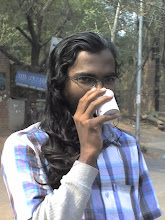Anil Sharma / DNA Thursday, June 10, 2010 0:16 IST
New Delhi: There’s nothing unusual in Supreme Court (SC) judges landing high-profile assignments post retirement. So, when justices RS Pathak, AM Ahmadi and Ranganath Misra, who presided over courts that ruled in favour of Union Carbide India Limited (UCIL), did well in life after their SC terms ended, no one noticed.
But now as India feels let down by a Bhopal court’s “light” sentences to ex-UCIL officials despite causing the world’s biggest manmade disaster that left over 15,000 dead, the verdicts delivered by these judges have returned to haunt the nation.
It was in the court presided over by then chief justice of India (CJI) Pathak that a settlement between Union Carbide Corporation (UCIL’s parent company) and the government was reached in 1989. The government had sought $3.3 billion, but got only $470 million. The settlement also removed the criminal liability in the case.
Within three months of his retirement, Pathak became a member of the International Criminal Court at The Hague. A five-judge bench headed by then CJI Ranganath Misra revived the criminal liability in 1991, but upheld the $470 million settlement. Misra is now a Congress MP and chairman of the commission that recommended reservation for Dalit Muslims and Christians.
A two-judge bench headed by then CJI Ahmadi reduced the charge of culpable homicide not amounting to murder to causing death by negligence. Since retirement, Ahmadi has been presiding over Bhopal Memorial Hospital Trust that runs a 350-bed superspeciality hospital. The trust was set up by Union Carbide.
Rs600 crore has gone into the trust, but its accounts are not in the public domain. The trust deed mandates that an SC judge should be its chairman and Ahmadi has been at its helm since retirement.
